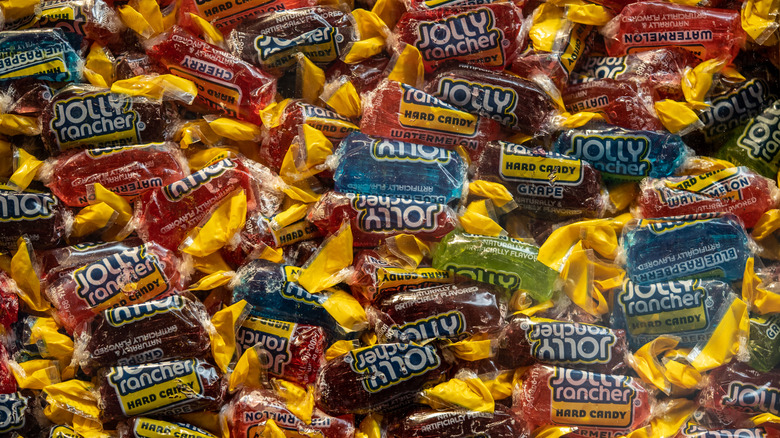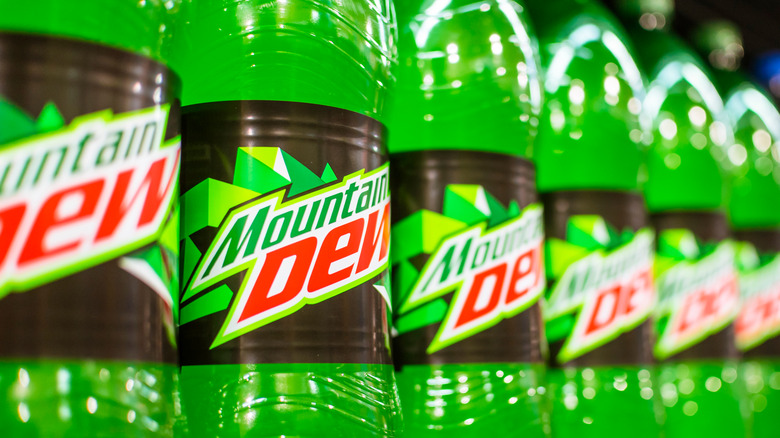UK Government Seized Mtn Dew, Jolly Ranchers, And Other Treats Over Illegal Ingredients
We all know candy and soda aren't exactly part of a healthy diet, but the U.K. government is going a step further by raiding candy stores and seizing American sweets and treats, as reported by the BBC. It certainly raises some questions when a foreign government perceives your food as being too dangerous for consumption. Among the items confiscated by authorities from the U.K.'s Trading Standards office were Mountain Dew, Jolly Ranchers, Sunny D, Swedish Fish, Twizzlers, and Lemonheads. Roughly £8,000 (equivalent to around 10,000 USD) worth of these items were taken from 22 different shops in the areas of Staffordshire and Burton-on-Trent.
American-made candy is allowed to enter the U.K., but candy manufacturers are required to follow a different set of guidelines for products that will enter the British market vs. the American market. Last year, more than $30 million worth of American sweets were imported into the U.K. but only a fraction of that is checked for compliance with British law. American candy manufacturers have denied sending non-compliant products to the U.K., crediting third parties for their illegal distribution into the country.
Why are American sweets illegal?
British food regulators have outlawed chemicals and food additives that the American government has not. Mineral oil, erythrosine (known as Red Dye 3), and calcium disodium EDTA were among the ingredients named as non-compliant. Mineral oil is sold as both a laxative and a moisturizer. It's perfectly safe for consumption on its own but, according to the U.K. government, it can cause cancer when it is combined with other ingredients. Red Dye 3 is made from petroleum and has been linked to thyroid cancer and hyperactivity, though the science behind the correlation remains inconclusive. According to Consumer Reports, the FDA banned the use of Red Dye 3 in cosmetics in 1990, leaving many American consumers perplexed as to why it is safe to eat when it isn't safe to touch.
Calcium disodium EDTA (which unfortunately has no shorthand title) is a preservative used in food, cosmetic, and industrial products. The studies (collated by Heathline) on this crystalline powder are also inconclusive, but some studies have suggested it is linked to colon cancer, and a few animal studies were believed to show it had deleterious effects on reproductive health, including birth defects. The British government seems less inclined to put their population at risk while the jury is still out, something many American citizens are envious of. The seizure of sweets is unlikely to cause any change in American food regulations, but it is certainly a reminder to be mindful of what we eat.

